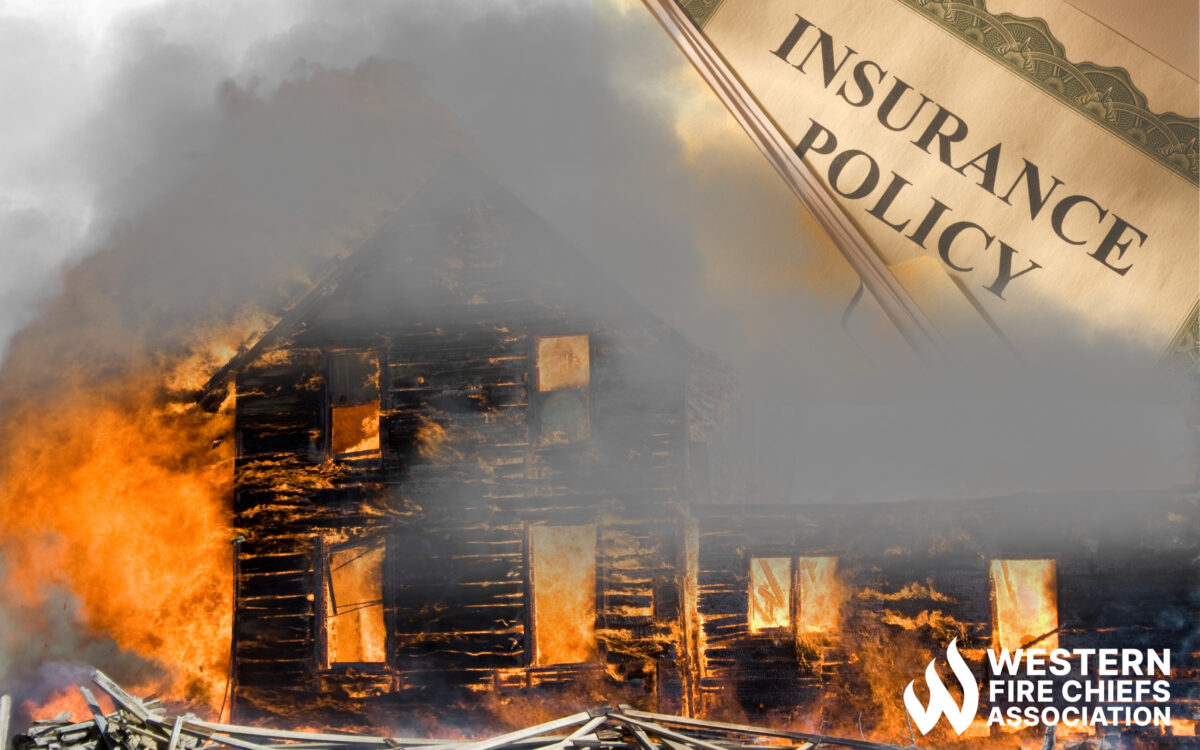Fire Pit Safety Tips
Stay safe around the campfire with tips from the Western Fire Chiefs Association. Learn essential precautions and practices for a worry-free outdoor campfire.
Navigate the complexities of wildfire insurance coverage with expert guidance from WFCA. Ensure your belongings are covered in the event of a catastrophic wildfire.
Published:September 26, 2023
Edited:March 1, 2024

Navigate the complexities of wildfire insurance coverage with expert guidance from WFCA. Ensure your belongings are covered in the event of a catastrophic wildfire.
In an area prone to wildfires, it’s essential to understand how homeowners insurance can protect you. In this article, we’ll dive into the world of homeowners insurance and wildfires. We’ll explore the coverage you can expect, the procedures for handling claims, and the proactive steps you can take to ensure you’re prepared for the unexpected.
Homeowners insurance plays a crucial role in your financial protection, especially when your home faces potential damage or destruction from covered disasters like wildfires. The coverage typically includes repairs or rebuilding of your home, as well as replacing or repairing damaged personal belongings.
It’s important to note that there is no standalone “wildfire insurance policy.” Instead, coverage for wildfires is typically a built-in component of a standard homeowners insurance policy. Coverage and terms vary, so it’s crucial to review your policy to understand the specific details and limitations.1 If you’re uncertain of your coverage or want to ensure its adequacy, it’s wise to consult with your insurance provider. They can offer the most accurate and personalized information regarding your coverage options.2
Some reasons why homeowners insurance may not cover wildfire damage include:
In situations where obtaining homeowners insurance becomes challenging, homeowners in high-risk areas may need to explore alternative options. One option is to pursue a state-run insurance program called Fair Access to Insurance Requirements plans (FAIR plans). These plans, available in 30 states, aim to provide coverage for homeowners in high-risk areas who may have difficulty obtaining insurance through traditional means.
Knowing what you’re paying for can help you better prepare for any potential wildfire damage. Here are some key components that wildfire damage coverage may include:
When it comes to damage caused by wildfires, your landlord’s insurance policy typically covers the structure itself. However, your personal belongings are not covered by your landlord’s insurance. That’s where renters insurance comes in.
Renters insurance is designed to protect your belongings in the event of damage or loss caused by various perils, including wildfires. It provides coverage for your personal property, such as furniture, electronics, clothing, and more. Renters insurance may also provide liability coverage. This can be beneficial if someone is injured on your rented property due to a wildfire, as it can help cover medical expenses or legal costs if you are found responsible.4
When it comes to settling insurance claims in a wildfire case, there are a few steps involved. Here’s a breakdown of the process:
Stay safe around the campfire with tips from the Western Fire Chiefs Association. Learn essential precautions and practices for a worry-free outdoor campfire.
Discover essential firework safety tips to ensure a dazzling display without accidents. Learn how to celebrate responsibly with expert guidance from WFCA.
Explore the role of AI in wildfire prediction with guidance from the WFCA. Learn how advanced algorithms and data analytics enhance early detection and response.